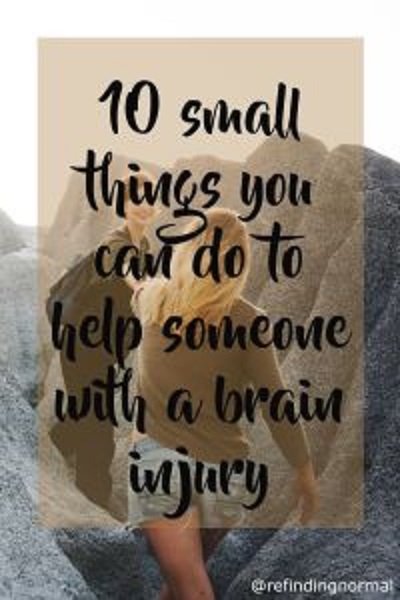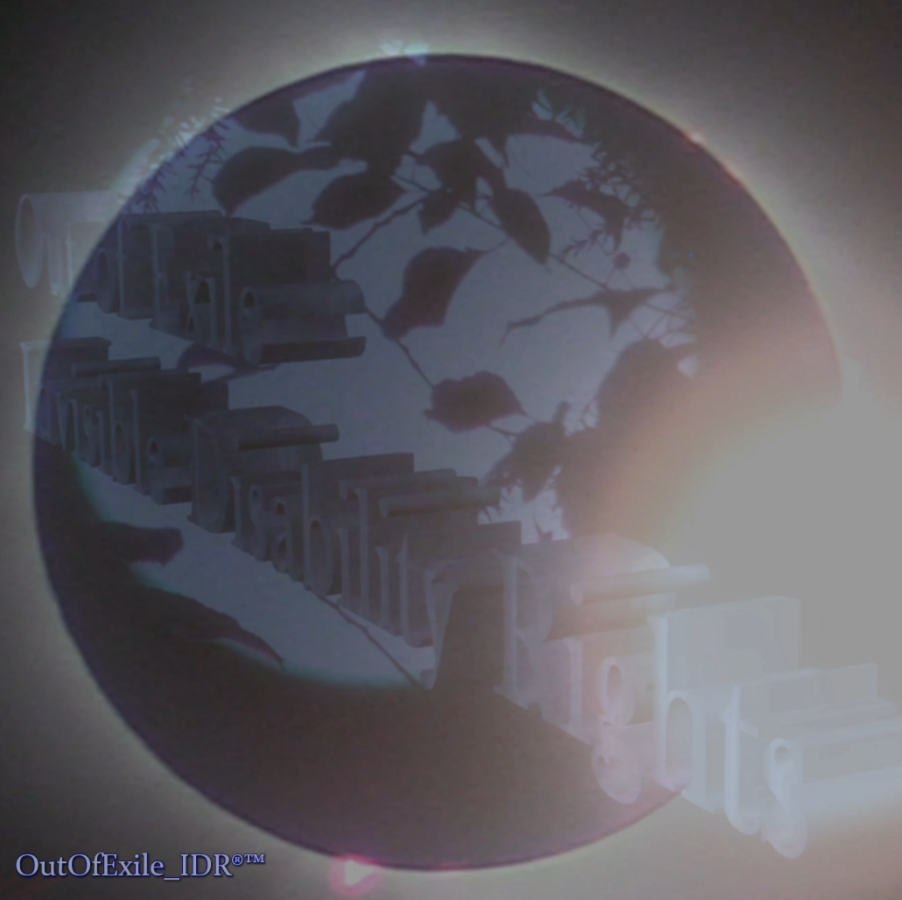
Alt text: Image of two people navigating a jagged valley of rocks. One turns back to help the other struggling with the journey through the difficult pathway. A hand of accommodation is extended, assisting the person to continue on their way. Accommodation is love. Superimposed on a semitransparent tan background are the words, “10 small things you can do to help someone with a brain injury”. Image from the article below.
I finally dragged myself to do grocery shopping today… It took FOUR hours. After being subjected to all the lights, noise, product decisions, screaming little ones, and overwhelming over-stimulation, I’m a puddle in a glass, that got knocked over on the floor. I feel like a stain on the rug. Oh yeah, I still have to put all the groceries away.
“The act of cooking or doing groceries are both exhausting.” (Evie) It’s not unusual for people with Brain injury and other Invisible Disabilities to dislike, and be greatly taxed by daily tasks. Evie’s article, “10 Small Things You Can Do to Help Someone with a Brain Injury”, is a concise, easy reading gem. (link below) This is a must for anyone interested in understand and accommodating people with brain injury and (IDs) invisible disabilities. It’s worth two minutes to read, don’t you think?
As one living the subject matter, I find Evie’s list to be the perfect glimpse for those “looking in” for understanding about TBI. So many, are unaware that even little things can overwhelm, and exacerbate symptoms for a person with IDs. From where to sit in a room, to being asked “how are you doing “, Evie has great wisdom on accommodation for brain injury survivors.
For me, at times, bright light is like a dose of kryptonite, with the addition of a migraine. In combination with shrilly sounds, and the “buzz” of shoppers in the background, just buying food, significantly weakens my battery, and bends the spoons. Before I get the food to parking lot, I’m already cooked and have no appetite. With my focus stolen by over-stimulation, making dinner can take me twice as long. In the time following my first accident, I once went five weeks without having ketchup. The activity in the store, sometimes caused me to stutter and tremor, after going down a few aisles in the motorized shopping buggy. Getting out of there, was more important than ketchup on fries.
The brain is a powerful force that controls our breathing, movement, emotion, and thinking. Like any other “muscle”, it wears down and needs rest. This is true with anyone, but especially for people with brain injury, and many other invisible disabilities. Better understanding and accommodation go hand in hand. For those who want to better theirs, Evie’s list of “10 small things…”, is a great place to start.
OutOfExile_IDR™ – Originally posted on Mastodon Dec 15, 2022
Evie offers her insight in:
Check out Evie’s others great writing on living with brain injury here.
OutOfExile_IDR™ – © 2024

All writings, images, graphics, logos, and other content by: OutOfExile_IDR™ unless credited otherwise.
All Rights Reserved. No Scraping.